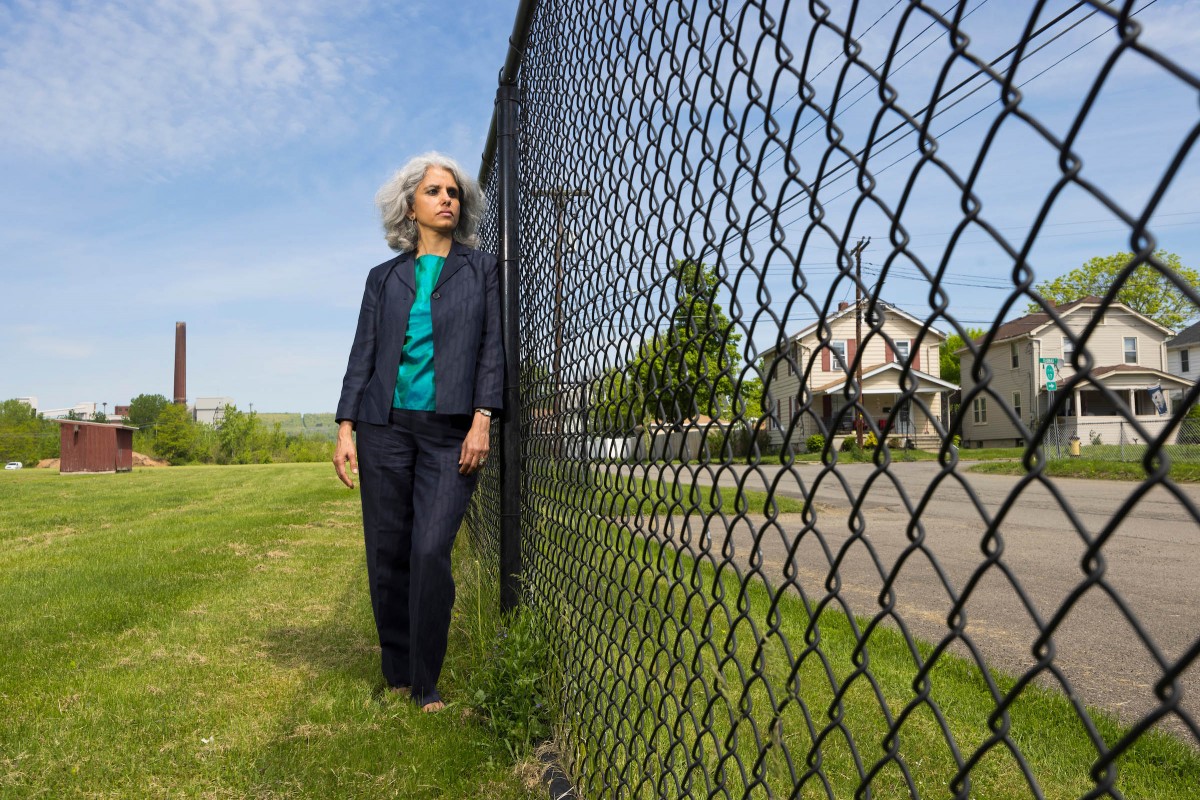‘Enviro-nomics’: The economics of pollution
Professor Neha Khanna shows how environmental policy has personal costs

To Neha Khanna, air pollution is more than an overarching environmental problem. It poses a particularly harsh burden to people in marginalized communities — people of color, lower-income families or recent immigrants, to name a few — who face its impact on their daily lives.
Khanna is an economics professor dedicated to exploring environmental economics from all angles. Beyond air pollution, there’s world oil usage, groundwater, climate change and the environment’s connection to personal health. If you ask her what might bind such complex subjects together, her answer is what one might expect from an economist.
It boils down to a cost-benefit analysis.
“We know problems like air quality are bad, but there’s not always an incentive, financial or otherwise, to do something about it. I could cut down on emissions by taking the bus instead of driving myself, but then there’s that time cost of waiting at the bus stop and reorganizing my schedule,” Khanna says. “We need people to be aware of and feel the cost of pollution because the cost of circumventing pollution can often still be lower than the benefit.”
Khanna’s expertise extends well beyond air pollution; she has published or contributed to more than 50 research studies and numerous seminar and conference presentations throughout her career.
When Khanna delved into global oil during the early 2000s, she and her former dissertation advisor examined how oil prices are set, a subject that continues to make headlines. While their research predictions about the exact price of oil were later proved to be inaccurate, Khanna says, they could still pinpoint underlying patterns and global forces that continue to play out even now.
“We got a lot of flak for it, but that’s some of the work I’m most proud of,” Khanna says, “because we found ourselves at this unique intersection of economics and politics.”
One of the more interesting intricacies of studying any environmental issue from the human perspective for Khanna is that “normal conditions” could mean different things depending on where you live.
In upstate New York, almost any decline in air quality can be perceived as aberrant — this reached extreme levels in the summer of 2023 when Canadian wildfires significantly impacted air quality throughout the Northeast — but in a place like New Delhi, India, poor air quality is something people are more accustomed to. Bad air advisory days for children and the elderly are common, as are the days when local schools are shut by government order due to high air pollution.
This dovetails with an extensive ongoing research project funded by the National Science Foundation that Khanna and her collaborators (all Binghamton alumni) started in September 2022 to explore pollution exposure across multiple generations.
Khanna hopes the project can address a persistent gap in environmental exposure between poor, minority communities and other relatively privileged communities despite the efforts of federal environmental policy. Her research also seeks to understand how history and kinship — relatives, people with similar socioeconomic backgrounds or ethnicities and other social ties — dictate where people live.
“If personal history and lived experience are strong drivers of where we live, then we need to start targeting policies affecting one’s community because people might choose to stay in a place where the environmental quality isn’t very good if their kinship is strong or if their idea of ‘normal’ is very different from someone else’s,” Khanna says.
As a social scientist, Khanna’s chief concern has always centered on the impact of economic and environmental policies on different groups. This is one reason Khanna and her graduate student are exploring how discriminatory redlining policies from the 1930s and 1940s affect contemporary pollution. In another study, Khanna and her collaborators are studying the impact of highway noise pollution on infant health and whether the effects are more acutely felt by marginalized communities.
“As economists, we talk a lot about policy, but understanding its social implications is equally important so that we can make that policy more acceptable,” Khanna says. “I’m still trying to understand the drivers behind these things, to explain better how we’ve reached where we are today so we can hopefully do a better job of addressing the situation more comprehensively.”
